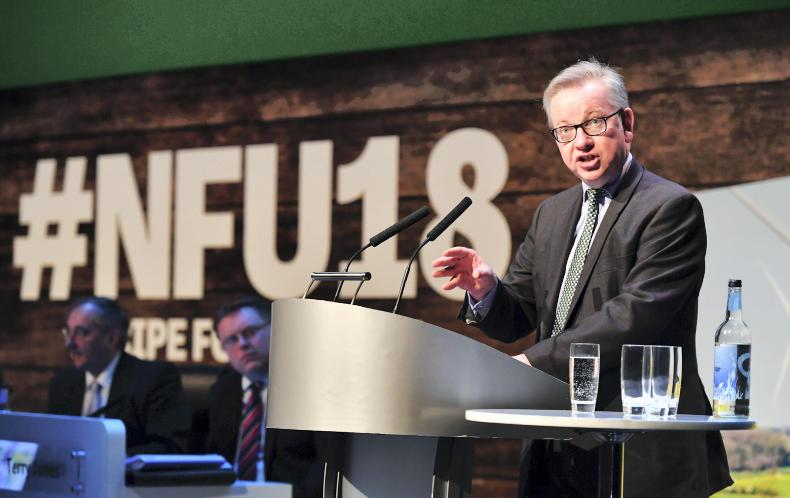English farmers will see direct payments "redirected" to conditional farm supports after Brexit, with UK Environment Secretary Michael Gove suggesting a £150m reduction in the first year, according to a public consultation launched by the British Government this Tuesday.
Devolved administrations such as Northern Ireland and Scotland will be free to conduct their own agricultural policy, but the plan for England is to phase out direct payments over "a number of years". Instead, the Conservative Government wants to spend an equivalent amount of money until 2022 on paying farmers for public goods, "principally their work to enhance the environment and invest in sustainable food production".
Payments for public access to farmland
The public consultation seeks opinions on other public goods which could be supported, such as investment in technology and skills, public access to farmland and the countryside, enhanced animal welfare and rural development measures.
While DEFRA said that direct payments would remain unchanged in 2019, Secretary Gove is considering options for the following year including a £100,000 cap on payments or a progressive reduction on all direct payments with deeper cuts for larger farms.
DEFRA is also inviting contributions on "measures to move away from heavy handed enforcement which penalises farmers for minor errors, including a more efficient inspection regime to uphold important environmental and animal welfare standards".
The consultation is open until 8 May 2018.
Read more
Gove supports glyphosate in the UK after Brexit
Scottish Highland farmers call for subsidies to survive
English farmers will see direct payments "redirected" to conditional farm supports after Brexit, with UK Environment Secretary Michael Gove suggesting a £150m reduction in the first year, according to a public consultation launched by the British Government this Tuesday.
Devolved administrations such as Northern Ireland and Scotland will be free to conduct their own agricultural policy, but the plan for England is to phase out direct payments over "a number of years". Instead, the Conservative Government wants to spend an equivalent amount of money until 2022 on paying farmers for public goods, "principally their work to enhance the environment and invest in sustainable food production".
Payments for public access to farmland
The public consultation seeks opinions on other public goods which could be supported, such as investment in technology and skills, public access to farmland and the countryside, enhanced animal welfare and rural development measures.
While DEFRA said that direct payments would remain unchanged in 2019, Secretary Gove is considering options for the following year including a £100,000 cap on payments or a progressive reduction on all direct payments with deeper cuts for larger farms.
DEFRA is also inviting contributions on "measures to move away from heavy handed enforcement which penalises farmers for minor errors, including a more efficient inspection regime to uphold important environmental and animal welfare standards".
The consultation is open until 8 May 2018.
Read more
Gove supports glyphosate in the UK after Brexit
Scottish Highland farmers call for subsidies to survive






 This is a subscriber-only article
This is a subscriber-only article










SHARING OPTIONS: